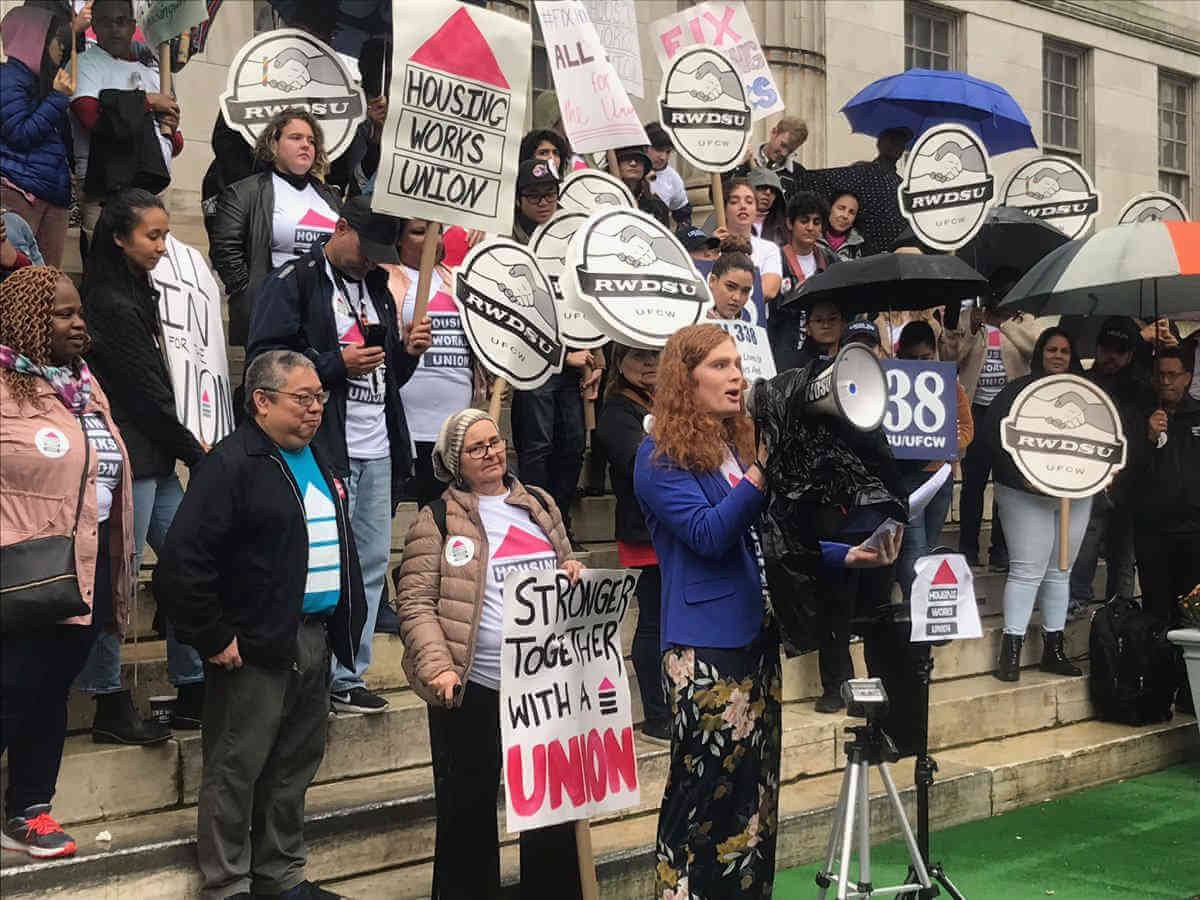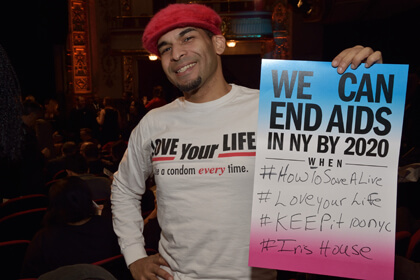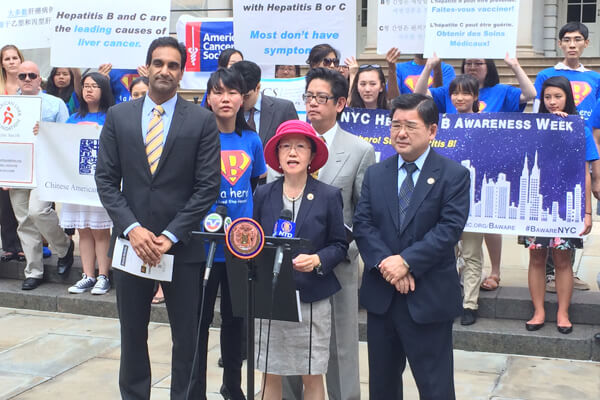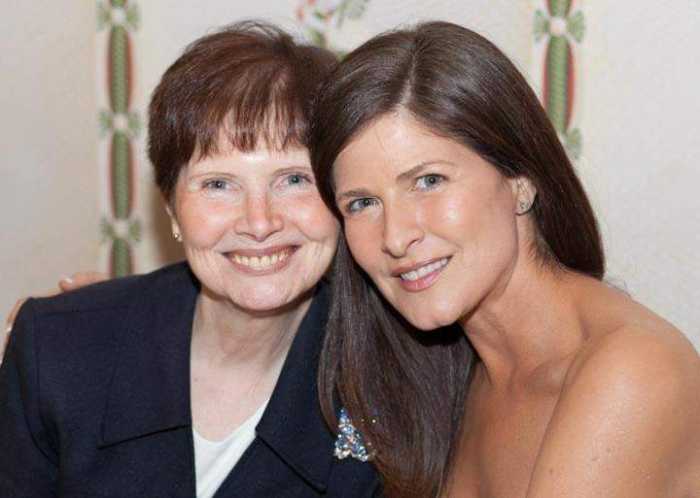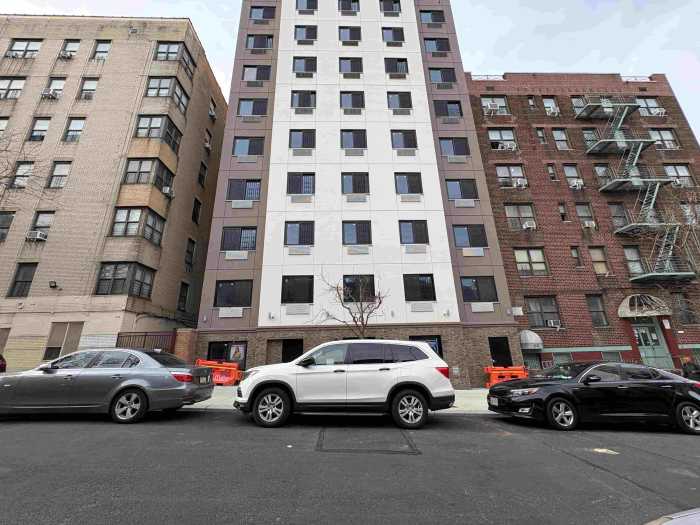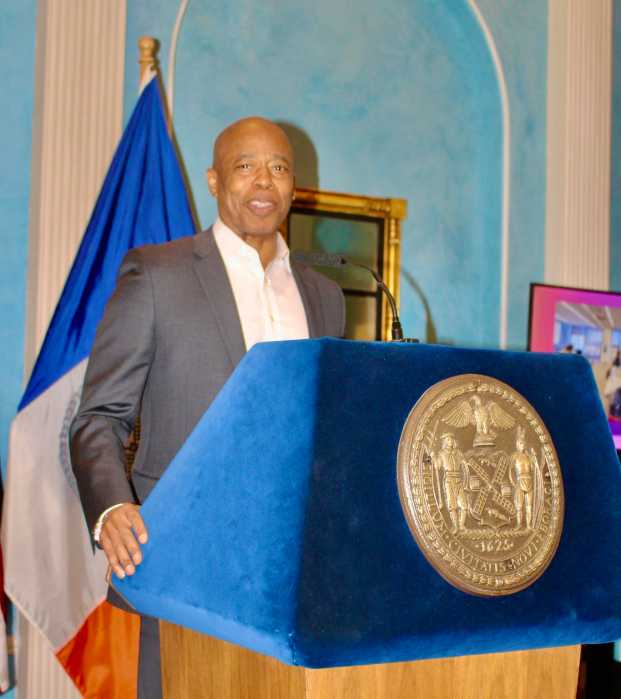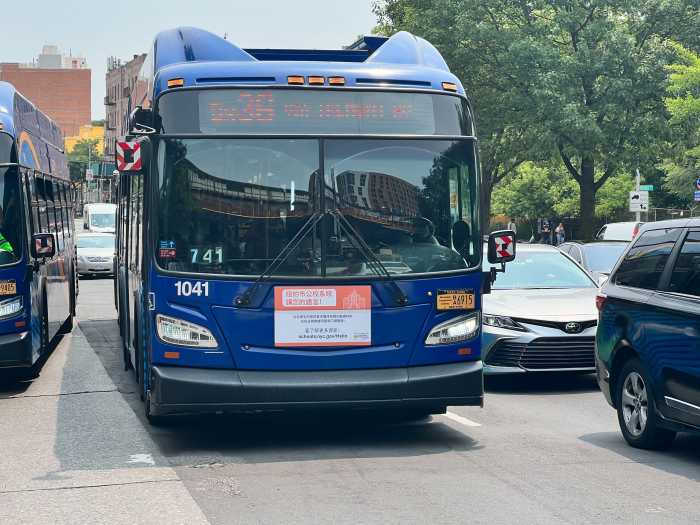With chants like “Union busting is disgusting” and “Fix Housing Works now,” more than 100 fed up employees of Housing Works packed together on the steps of Brooklyn’s Borough Hall October 29 to speak out about poor working conditions and demand that management respect their efforts to unionize.
[Editor’s note: This article has been revised to reflect an email obtained by Gay City News showing that, contrary to an email Housing Works CEO Charles King recently sent to employees that he provided to this newspaper, the union organizing Housing Works employees had already offered concessions on points King complained about.]
The rally represented a dramatic turn of events for the nonprofit, which has long been dedicated to eradicating the dual crises of HIV/ AIDS and homelessness and has often led demonstrations on behalf of marginalized people. This time around, however, the organization found itself on the other side of the protests: Workers stormed out of their offices on a Tuesday morning to flock to the rally, where they spoke of flimsy healthcare plans with high deductibles, railed against inadequate paid time-off policies, and told stories of colleagues suddenly getting terminated without notice and escorted out of the office.
The workers also ripped Housing Works for overworking them, saying their client caseloads are too high. Others tore into Housing Works CEO Charles King, saying that his open-door policy is not what he makes it out to be.
Siobhán Fuller, who works in the human resources department, said she has demonstrated her dedication to the organization’s mission by getting arrested during demonstrations on multiple occasions. Yet, because she has not met her high deductible, she is forced to pay hundreds of dollars for hormones she needs in addition to $100 per appointment for necessary doctor visits throughout the year.
“As a trans woman who works with the organization, my healthcare coverage is not enough,” Fuller said.
Brian Grady, a housing coordinator who is on the organizing committee that has spearheaded the unionization effort, said it was around this time last year that he and just a handful of others started meeting in downtown Brooklyn to begin the unionization process. They reached out to the Retail, Wholesale, and Department Store Union (RWDSU), which has backed the workers and joined them at the October 29 rally.
“They’ve been incredibly supportive of us,” Grady said.
During the latter half of the rally, a group of employees marched to Housing Works’ office nearby and said they presented CEO Charles King with Unfair Labor Practice Charges they filed with the National Labor Relations Board, alleging he would not assure that he would not retaliate against them. They described King as being dismissive when they presented the charges to him. They also noted that he previously refused to sign a commitment to neutrality presented to him by the union.
When reached by phone after the rally, King referred Gay City News to emails he sent to staff and pointed to where he said management would not to retaliate against employees.
“I want to be very clear because I’ve heard Housing Works is doing things to undermine the union,” King said. “Housing Works is completely neutral. We think that is an employee decision; employees have a right to unionize and management’s job is to stay neutral.”
He further stood by Housing Works’ benefit package, saying, “We are quite proud to have been able to expand benefits without increasing employee contributions to health plans.”
King also defended employees’ existing caseloads and salaries.
In an October 25 letter to staff, King outlined the reasons why he refused to sign the neutrality agreement: He claimed it would force employees to attend union meetings during work time, which King said management sees “as a tacit endorsement of RWDSU” and would take away employees’ rights to decide whether they wanted to attend. He went on to cite concerns about privacy, saying the agreement would force the organization to provide workers’ home and cell phone numbers.
“It would also require recognition based on a card-check system instead of allowing you to vote by secret ballot,” King added in the email. “Finally, it would prohibit supervisors and executive management from having any discussion with employees pertaining to the union, even to answer questions.”
However, that email came more than a month after the head of RWDSU, Stuart Appelbaum, sent an email to King in which the union offered multiple concessions. Among those compromises included a willingness to allow secret-ballot elections and to hold union meetings “with employees when employees are not required to work.”
Grady said after the rally that management “has been playing this unusual game where they’re claiming to be neutral but on their own terms.”
He added, “There have been a number of different iterations of that. They sent out an initial email when we first made the neutrality ask saying they’d be neutral, then they sent out one or two other emails since then that have tacitly denigrated the union and said that Housing Works reserves a right to advocate on its own behalf.”
The workplace frustration, first reported by The New York Times, has drawn the attention of local elected officials from various level of government. Out gay City Councilmember Jimmy Van Bramer of Queens joined workers at the rally alongside his Council colleagues Ben Kallos of Manhattan and Brad Lander of Brooklyn.
Van Bramer, bullhorn in hand, faced the workers on the steps of Borough Hall and thanked them for standing up for themselves.
“There is no such thing as queer rights without worker rights,” Van Bramer said.
Among other lawmakers to voice support for the workers included Congressmember Jerrold Nadler of Manhattan and Brooklyn, State Assemblymember Michael Blake of the Bronx, Councilmember Helen Rosenthal of Manhattan, and State Senators Julia Salazar of Brooklyn and Gustavo Rivera of the Bronx.
King said he has been in contact with several elected officials regarding the unionization process. But when asked about politicians who were in attendance at the rally, he said he had not communicated with them.
“I would appreciate that if they want to have a conversation about it, give me a call,” he said.
Following the rally, care manager Ilana Engelberg, who was among the most vociferous leaders of the group, said she was pleased with the collective activism of colleagues who traveled from different parts of the city to stand up for one another at Borough Hall.
“[Today was] amazing,” she said. “These are workers from all different sites and all different job titles… case workers, mental health providers, bookstore workers.”
She continued, “We all want the same thing. We want to have the ability to negotiate our own terms. We want to have a say in our workplace. And we deserve that.”


